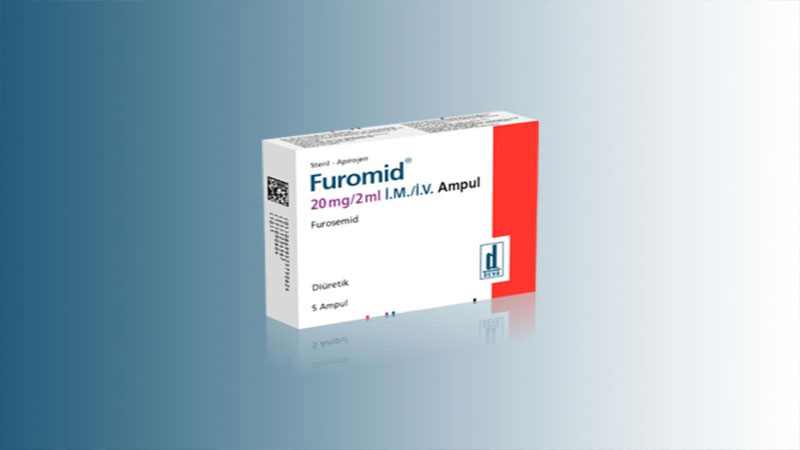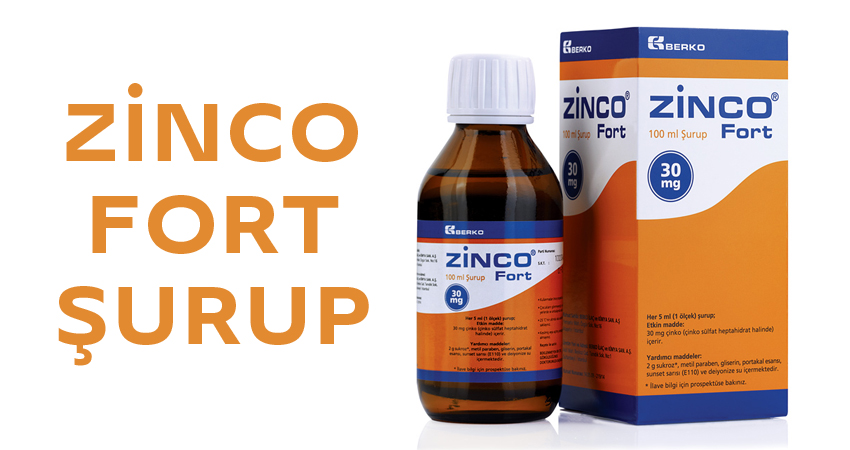Furosemid Nedir? Furosemid Ne İçin Kullanılır?

Furosemid Nedir? Furosemid Ne İçin Kullanılır? Furosemid kalp yetmezliği, karaciğer hastalığı, yüksek tansiyon veya nefrotik sendrom gibi böbrek rahatsızlığı bulunan kişilerde sıvı tutulumunu (ödem) tedavi etmek için kullanılır. Furomid, Karsemid gibi isimlerle satılan bu ilaç genellikle günde 1 kez kullanılır. Furosemid kullandıktan 30 dakika sonra idrara ihtiyaçı duyulur bu nedenle Furosemid halk arasında idrar söktürücü olarak bilinir.
Furosemid Nedir? Ne İçin Kullanılır?
Furosemid, antranik asit türevi olan diüretiktir. Kimyasal olarak, 4-kloro-N-furfuril-5-sülfamoilantranilik asittir. Furosemid, beyazımsı ila beyazımsı kokusuz kristal tozdur ve vücudun çok fazla tuz emmesini önleyen bir loop diüretiktir. Konjestif kalp yetmezliği, karaciğer hastalığı veya nefrotik sendrom gibi böbrek rahatsızlığı bulunan kişilerde sıvı tutulumunu (ödem) tedavi etmek için kullanılır. Loop diüretiği olan furosemid henle kulpunun çıkan kolunda bulunan sodyum-potasyum-klorid kotransporterini (NKCC2) bloke ederek nefronda suyun yeniden emilimini inhibe eder. Ayrıca yüksek kan basıncını (hipertansiyon) tedavi etmek için kullanılır.
Etki Başlangıcı:Oral: 30-60 dakika; IM: 30 dakila; IV: ~5 dakika
Etki süresi: Oral: 6-8 saat; IV: 2 saat
Yarılanma Ömrü (t½): 0,5-2 saat
Metabolizma: Minimal karaciğerde.
Atılım: İdrarla.
Ticari İsim:
DESAL (Ampul)
DESAL (Tablet)
FUROMİD (Ampul)
FUROMİD (Tablet)
LASİX (Ampul)
LASİX (Tablet)
LİZİK (Tablet)
UREVER (Ampul)
ENDİKASYON – KONTRAENDİKASYON
Endikasyonlar: Furosemide, konjestif kalp yetmezliği, akut pulmoner ödem, karaciğer sirozu ve nefrotik sendrom da dahil olmak üzere böbrek hastalığına bağlı ödem tedavisi için yetişkinlerde ve pediyatrik hastalarda endikedir.
Not: JNC 8 kılavuzuna göre, hipertansiyonun başlangıç tedavisi için loop diüretikleri önerilmemektedir (James 2013). Amerikan Hipertansiyon/ Uluslararası Hipertansiyon Derneği, kronik böbrek hastalığı olan hastalarda (yani, eGFR <30 mL/ dakika/ 1.73 m2) bir loop diüretik kullanılması gerektiğini önermektedir (Weber 2014) .
Kontraendikasyonlar: Furosemid veya Sülfonamid türevi ilaçlara karşı aşırı duyarlılığı olanlar, anüri, hepatik koma ve prekoma, hipovolemi, dehidrasyon veya hipotansiyon. Yenidoğan bebekleri veya hiperbilirubinemi ve muhtemelen kernikterusa neden olabilecek hastalıkları olan yenidoğan bebekler. Nefrotoksik veya hepatotoksik maddelerle zehirlenmeye bağlı böbrek yetmezliği.
UYGULAMA
Ödem
Konjestif kalp yetmezliği (KKY), karaciğer sirozu ve nefrotik sendrom da dahil olmak üzere böbrek hastalığına bağlı ödem;
Günde bir kez 20-80 mg PO; 600 mg/gün aşılmama
Alternatif: 20-40 mg IV/IM; Bireysel doz 200 mg/doz aşmamalı
Refrakter KKY daha büyük dozlar gerektirebilir
Akut Pulmoner Ödem/ Hipertansif Kriz/ Artmış İntrakranyal Basınç1-2 dakika içinde 0.5-1 mg/kg (veya 40 mg) IV; 1 saat içinde yeterli yanıt yoksa 80 mg’a, 160-200 mg/doz aşmamak kaydıyla arttıralabilir.
İleri Kardiyak Yaşam Desteği (ACLS) Hiperkalemi
40-80 mg IV
ACLS’de hiperkagnezemi
20-40 mg IV
Doz Ayarlama Değişiklikleri
Akut böbrek yetmezliği: 1-3 g/gün istenen yanıt elde etmek için gerekli olabilir; Oliguel durumlardan kaçının
Karaciğer yetmezliği: Hipokalemi ve sirozda hacim tüketimine karşı duyarlılığın artmasıyla natriüretik etkinin azalması. Etkileri, özellikle yüksek dozlarda izleyin.
GEBELİK – LAKTASYON
Gebelik Kategorisi: C. Furosemid plasenta bariyerini geçmektedir.
Emzirme: Furosemid meme sütüne geçer ve laktasyonu inhibe edebilir. Furosemid ile tedavi edilen kadınlar bebeklerini emzirmemelidir.
YAN ETKİ – TOKSİSİTE
Yan Etki:
Furosemid, sodyum ve klorür ve sonuç olarak su atılımında bir artışa neden olur. Ayrıca, diğer elektrolitlerin (özellikle potasyum, kalsiyum ve magnezyum) atılımı da artar. Semptomatik elektrolit bozuklukları ve metabolik alkaloz, giderek artan elektrolit eksikliği şeklinde ya da örn., böbrek fonksiyonu normal olan hastalara yüksek furosemid dozları uygulandığında, akut şiddetli elektrolit kayıpları şeklinde gelişebilir.
Elektrolit bozukluklarının uyarıcı belirtileri arasında susamada artış, baş ağrısı, konfüzyon, kas krampları, tetani, kas zayıflığı, kalp ritim bozuklukları ve gastrointestinal semptomlar sayılabilir.
Altta yatan hastalıklar (örn., karaciğer sirozu, kalp yetersizliği), birlikte kullanılan ilaçlar ve beslenme gibi faktörler elektrolit bozuklukların gelişimini etkiler. Özellikle, kusma ve diyarenin bir sonucu olarak potasyum eksikliği meydana gelebilir.
Toksisite
Furosemide ile doz aşımının başlıca bulguları ve belirtileri dehidrasyon, kan hacmi azalması, hipotansiyon, elektrolit dengesizliği, hipokalemi ve hipokloremik alkaloz olup, diüretik hareketinin uzantılarıdır.
Toksisite veya ölümle bağlantılı biyolojik sıvılardaki Furosemid konsantrasyonu bilinmemektedir.
Doz aşımı tedavisi destekleyici olup aşırı sıvı ve elektrolit kayıplarının yerine konmasıyla oluşur. Serum elektrolitleri, karbondioksit seviyesi ve kan basıncı sıklıkla ölçülmelidir. Mesane çıkış obstrüksiyonu olan hastalarda (prostat hipertrofisi gibi) yeterli drenaj sağlanmalıdır.
Hemodiyaliz, Furosemide eliminasyonunu hızlandırmaz.
DİKKAT!
*Sistemik lupus eritematosus, karaciğer hastalığı, böbrek yetmezliği konusunda dikkatli olun
* Eş zamanlı etakrinik asit tedavisi (ototoksisite riskini arttırır).
* Sıvı veya elektrolit dengesizliği (hiperglisemi, hiperürisemi, gut yol açma gibi riskler), Hipotansiyon, metabolik alkaloz, şiddetli hipokalemi, şiddetli hipokalemi, hepatik komaya girme ve prekoma, hipovolemi (hipotansiyonu olan veya olmayan) durumlarda dikkatli olun.
* Gelişme kaydedilene kadar hepatik komada ve elektrolit tüketiminde tedaviye başlama.
* IV yol PO yoldan iki kat daha etkili.
* Gıda alımı emilimini geciktirir, ancak diüretik tepkiyi geciktirmez.
*Lupus’u kötüleştirebilir.
*Güneş ışığına karşı hassasiyet geliştirebilir.
*Prematüre yenidoğanlarda uzun süreli kullanım nefrokalsinozise neden olabilir.
*Hipoproteinemi (nefrotik sendrom ile ilişkili) hastalarda etkinlik azalır ve ototoksisite riski artar; Ototoksisite, hızlı enjeksiyon, ciddi böbrek yetmezliği, önerilen dozlardan daha yüksek dozlarda kullanılması, aminoglikozid antibiyotikler, etakrnik asit veya diğer ototoksik ilaçlarla eş zamanlı tedavi ile ilişkilidir.
*Sirozda elektrolit ve asit/baz dengesizlikleri hepatik ensefalopatiye neden olabilir; Tedaviye başlamadan önce, karaciğer koması olduğunda, elektrolit ve asit/baz dengesizliklerini düzeltin.
*Yüksek dozlarda (> 80 mg) furosemid, taşıyıcı proteinlere tiroid hormonlarının bağlanmasını inhibe edebilir ve serbest tiroid hormonlarında geçici artışa ve bunun ardından toplam tiroid hormonu seviyelerinde genel azalmaya neden olabilir.
*Radyokontrast nefropati riski yüksek hastalarda furosemid; radyokontrastı aldıktan sonra böbrek fonksiyonlarında bozulma insidansını yükseltebilir.
*Kan diskrazisi, karaciğer veya böbrek hasarı veya diğer kendine has tepkimeler için hastaları düzenli olarak gözlemleyin.
*Yenidoğanlarda işitme kaybı furosemid enjeksiyonu ile ilişkilendirilmiştir.
*Repirtuvar distress sendromlu prematür yenidoğanlarda yaşamın ilk birkaç haftasında furosemid ile idrar söktürücü tedavi, muhtemelen bir prostaglandin-E aracılı süreç vasıtasıyla devam eden patent ductus arteriosus (PDA) riskini artırabilir.
*Aşırı diürez; özellikle yaşlı hastalarda dehidratasyona, kan hacminde azalmaya ve muhtemelen vasküler tromboz ve emboliye neden olabilir.
*Ciddi üriner retansiyon semptomları olan hastalar (mesane boşalması bozuklukları, prostatik hiperplazi, üretral daralma nedeniyle), furosemidin verilmesi artmış üretim ve idrarın tutulması ile ilişkili akut üriner retansiyona neden olabilir; Bu hastalar özellikle tedavinin ilk aşamaları sırasında dikkatli bir izleme gerektirir.
İlginizi Çekebilir 👇
👉Öğrenci Gündemi’ ni İnstagram’dan Takip Etmek İçin Tıklayınız




